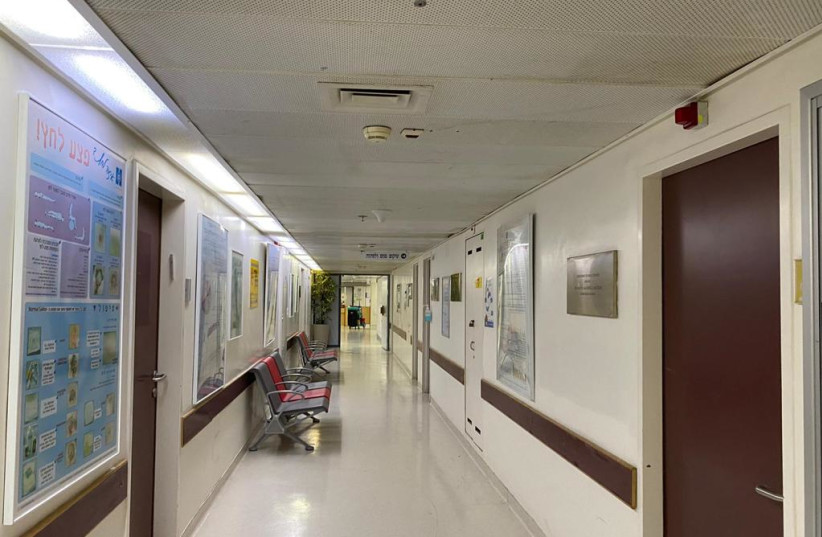Israeli businessman Chilik Chaivi was arrested in Jordan, caught COVID-19 and brought back to Jerusalem in critical condition on a bail of a million shekels on Sunday.
Chaivi was visiting Jordan last month when he was arrested a Jordanian businessman scammed him in an international sting operation. Chaivi opened a plastic factory in Jordan in 2016, employing locals to help him. It was later revealed that they had scammed him and stolen much of his money. The ensuing disagreement with his partners resulted in his arrest on his arrival in Jordan last month.
While serving his sentence, Chaivi, whose lungs do not function properly, caught COVID, and his medical state soon deteriorated.
Chaivi was in a Jordanian hospital in critical condition until he was released on a million shekel bail on Sunday and transferred to Hadassah-University Medical Center.
"His release was made possible thanks to good people who did everything to save his life and did another mitzvah before Rosh Hashanah," Chaivi's son Lior told Ynet. "Thanks to this mitzvah, we will be able to save Dad's life."
Lior continued, thanking the Foreign Ministry and the appointed minister "and especially the consul in Jordan Etti Binyamin." He also thanked President Isaac Herzog "who personally worked and reminded us all anew the appreciation he has in the international sector."

Chaivi's childhood friend, Kobi Agmon, told Ynet that the terms for Chaivi's release were NIS 3.6 million or one million if it was handed over in cash. "We owe great thanks to Leumi Bank and Bank HaPoalim who worked from the most senior managers to the branch managers and their employees until late at night in order to find any way to get the money and transfer it quickly with minimum bureaucracy," he said.
